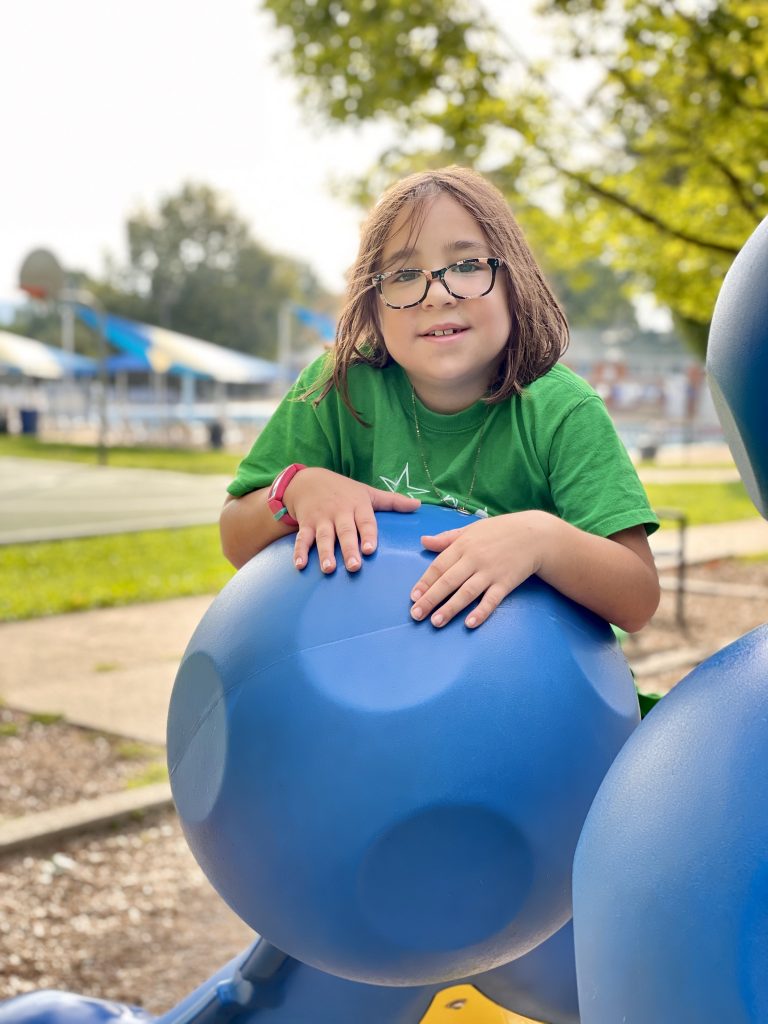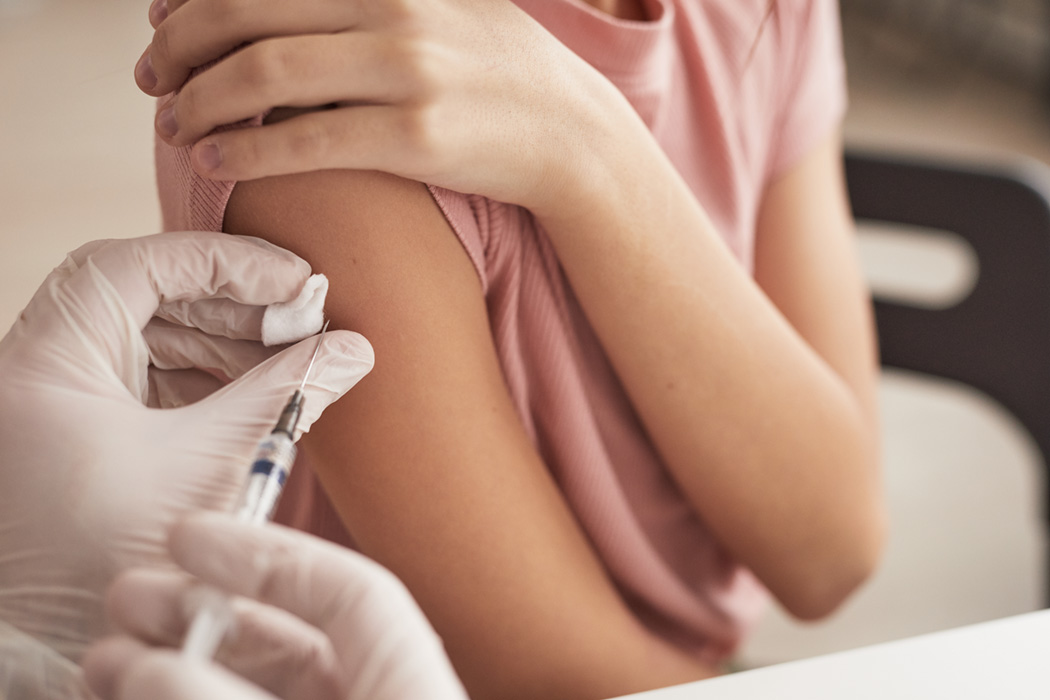Hattie Billmeier was a little nervous, but excited. She rolled up her sleeve, and in a “split second” it was all over—she got her first dose of the COVID-19 vaccine.
“It felt good,” says Billmeier, a second grader at Venable Elementary School. “It just gives you a little pinch.”
Afterwards, Billmeier and her cousins, who also got the shot, celebrated the long-awaited occasion with free snow cones at their pediatrician’s office.
“We were proud of her. I’ve never seen a kid so excited to get stuck with a needle before,” says Hattie’s father Zak Billmeier. “It’s been two years of pretty constant fear around this…so she felt relieved that finally she could have the shot now.”
Since November 6, nearly 5,600 kids ages 5 through 11 in the Blue Ridge Health District have gotten their first dose of the Pfizer vaccine, which was approved for pediatric use by the CDC on November 2.
The vaccine offers the same protection as the one for older children and adults, but contains one-third the dosage, says Jen Fleisher, BRHD COVID communications lead. Because of the lower dosage, kids typically experience mild side effects, like fatigue, joint pain, and arm soreness. (Billmeier says she experienced no side effects.)
“What we’ve mainly heard from parents is that ‘my kid was just really tired,’” says Fleisher.

Over 100 vaccine appointments are now available every day for children at the BRHD community vaccination center at Seminole Square, located inside the former Big Lots next to Marshalls.
The health district is also hosting weekly drive-through clinics at city elementary schools. Many local pediatricians are offering vaccines, too.
Though young children are much less likely to become severely ill and die of COVID-19, the vaccine can prevent them from transmitting the virus to people who are high-risk, especially those who live with them.
“If your whole family is fully vaccinated, you’re reducing that risk of hospitalization for the entire household,” explains Fleisher. “You’re also reducing that risk of complications for teachers, and increasing your chance of having a normal school day.”
“There are kids who are very high-risk and they want to see their friends,” she adds. “I personally know families who have been quarantined for two years.”
Fleisher encourages parents who are hesitant to get their child vaccinated to voice their concerns. At the health district’s vaccine sites, local families and medical professionals who participated in the clinical trials are available to answer any questions parents—or kids—may have.
“The main concern I hear is [that] it’s so new,” says Fleisher. However, “everything is happening at a rapid pace because for the first time there are all these situations that make it more viable to have clinical trials…It’s not because they are rushing it.”
For his family, it’s been nice to finally be “a part of the solution,” says Zak Billmeier.
“It’s about keeping everybody safe, all of us together as a community,” he says. “It’s the best thing we can do for each other.”
